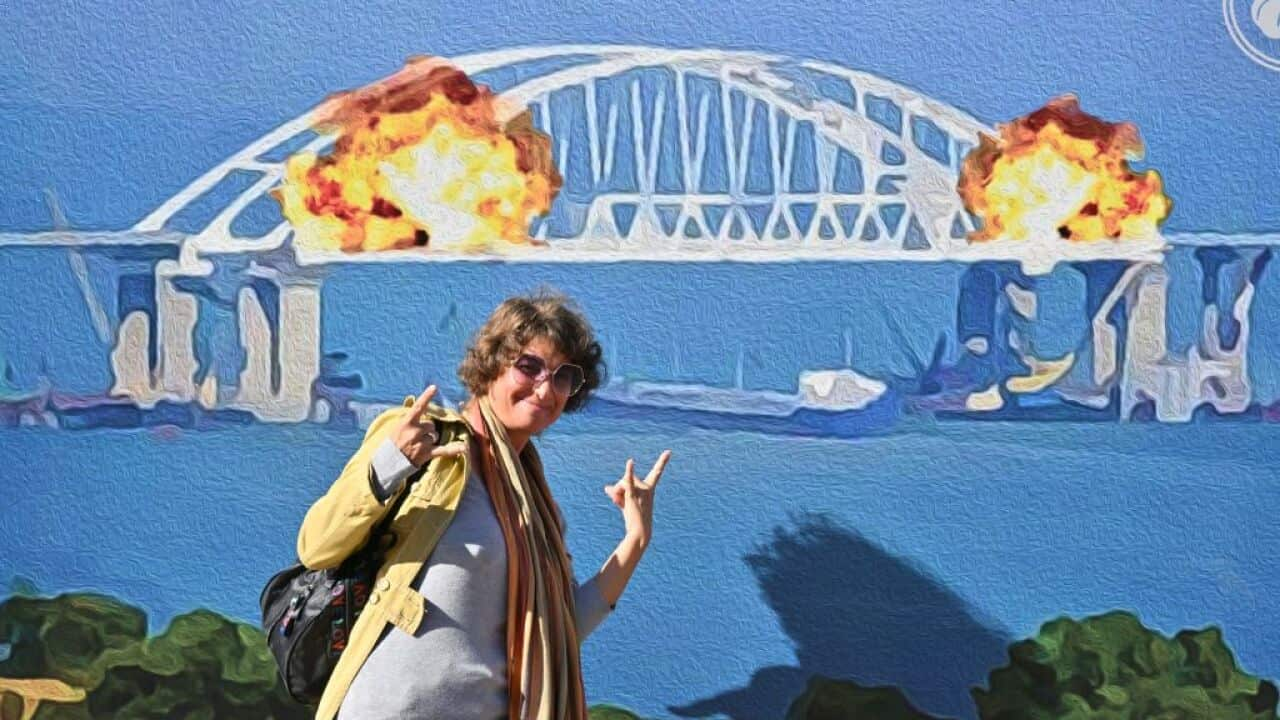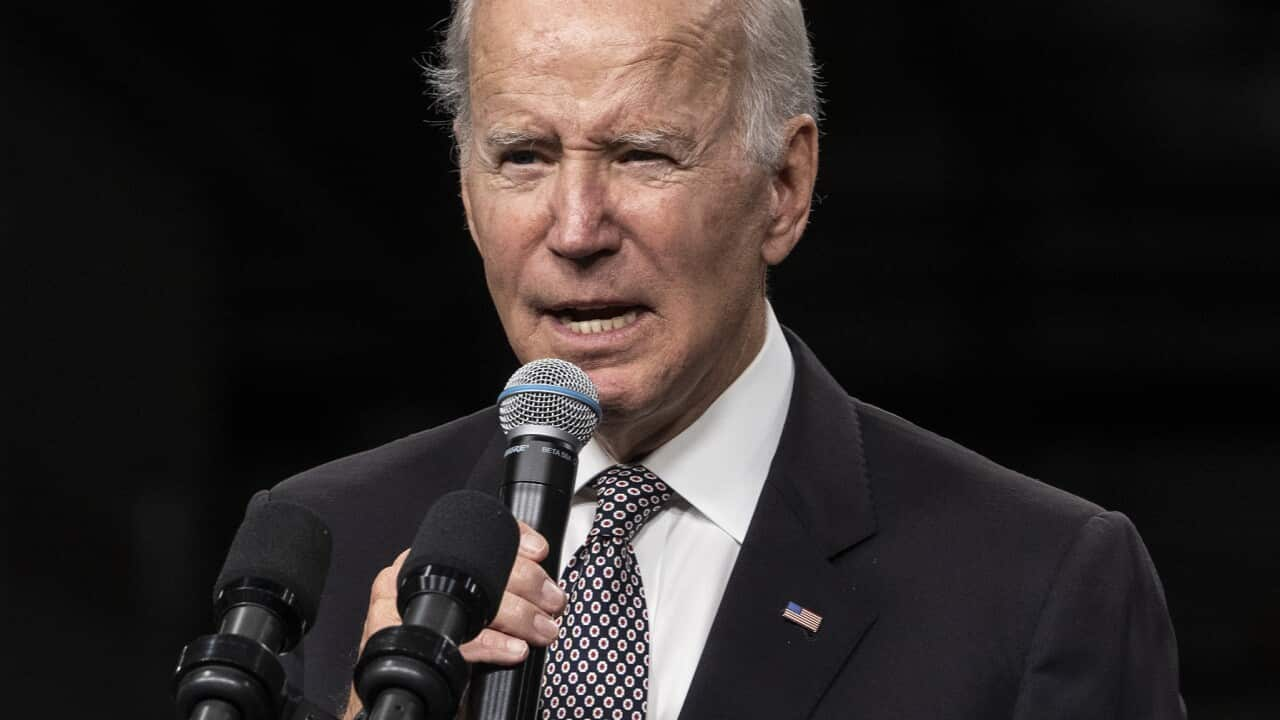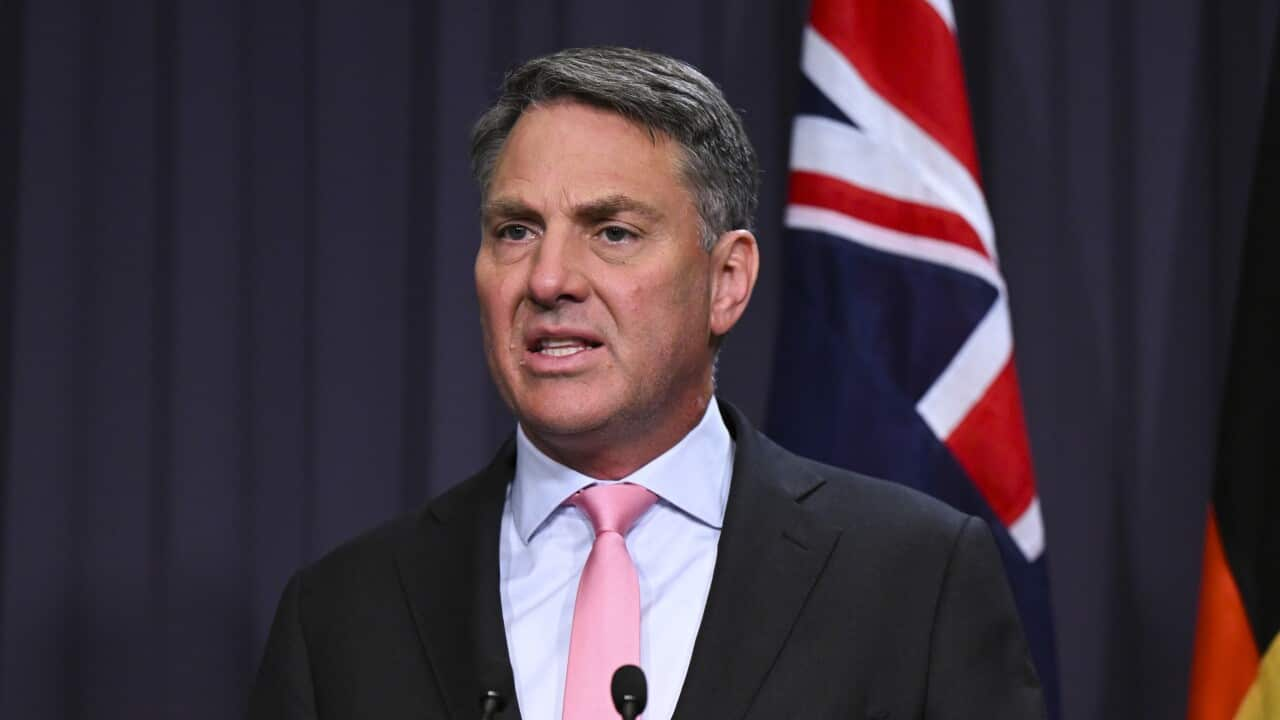Key Points
- On Monday, Russian launched its biggest missile attack in months, which killed at least 11 people across Ukraine.
- What led to this attack, how has Ukraine reacted, and what could happen next?
In the aftermath of , questions are being raised over what this escalation could lead to, and whether the attacks signal the beginning of a new, more deadly phase in the conflict.
The missiles hit intersections, parks and tourist sites in the capital Kyiv and explosions were reported in Lviv, Ternopil and Zhytomyr in western Ukraine, Dnipro and Kremenchuk in the centre, Zaporizhzhia in the south and Kharkiv in the east.
At least 12 people were killed, many more injured, and swathes of the country were left without power.
So why did Russian President Vladimir Putin order the attack, and what happens now?
'A dangerous escalation'
The attacks have largely been viewed as a retribution move in response to an linking Russia to the annexed Crimean peninsula, with Mr Putin threatening more strikes in future if Ukraine hit Russian territory.
Dr Jessica Genauer, lecturer in International Relations at Flinders University, says there appear to be two key factors driving Mr Putin's barrage of missiles into the heart of Ukraine’s cities.
According to Dr Genauer, throughout September and October, , with the Kerch bridge attack dealing an additional reputational blow to the Russian president.
"Russia has stalled or retreated across the frontline, with significant gains for Ukraine in the Kharkiv and Kherson regions," she said.
"The second factor is Russian domestic discontent ... military failures in Ukraine and the chaotic implementation of Putin’s recent mobilisation have sparked criticism in Russia of the way in which Russia is fighting this war."
Dr Genauer said while criticism has not broadly been directed at Mr Putin himself, the criticism of Russia and domestic discontent signifies a shifting tide.
"Putin’s decision to respond to these factors with brutal attacks on civilian infrastructure in Ukraine demonstrates a dangerous willingness to escalate in order to maintain a grip on power at home," Dr Genauer said.
"Unfortunately for Putin, the indiscriminate nature of these attacks will only deepen Ukrainian conviction that a military victory is the only path to maintain sovereignty."
"The attacks suggest that a decisive response from Ukraine’s Western partners is required now, to deter the future possibility of the unthinkable escalation: a nuclear strike."
Dr Sonia Mycak, research fellow at the Centre for European Studies at Australian National University, says while threats should be taken seriously, she does not believe Mr Putin is likely to use nuclear weapons.
"I think Russia's nuclear threats are more likely a tactic of intimidation," she said.
"Firstly, we need to consider the position of Ukraine in relation to Russia – they’re neighbours, so the prevailing winds would likely carry radiation and fallout back to Russia, and harm Russian land and people."
Additionally, Dr Mycak says the threat of retaliation from the United States is important to consider.
"The US has already stated it would retaliate in the event of Putin detonating nuclear weapon - this is a serious threat because the US nuclear arsenal is larger and more powerful than Russia's," she said.
"Thirdly, there is no evidence of nuclear escalation as noted by the US and NATO … they are watching, and as of a few days ago they announced there was still no change, no evidence of Russia taking steps to escalate weaponry."
'Designed to terrorise civilians'
Dr Mycak described the attack as a tactical move designed to incite fear in the civilian population of Ukraine.
"Ukraine has released an official statement of 84 missile strikes (in) more than 10 cities across Ukraine including the capital city Kyiv, and the area that was very severely affected in Kyiv is a very important cultural precinct for Ukraine as well," she said.

Injured civilians are seen after several explosions rocked the Shevchenkivskyi district of the Ukrainian capital, Kyiv on 10 October, 2022. Source: Getty / Anadolu Agency/Anadolu Agency via Getty Images
Dr Mycak says the last missile attacks had highlighted Mr Putin's determination to completely dismantle Ukraine.
"The longer this goes on, the more the world sees that the Putin regime is not interested in anything other than destroying Ukraine," she said.
"I think that the sorts of attacks that we saw in the last few days show that really the aim is genocidal; the aim is really to dismantle and destroy Ukraine and more and more, I think countries are seeing that is the case."
What has the reaction been, and what happens next?
United States President Joe Biden pledged to Ukraine President Volodomyr Zelenskyy on Monday that his country will provide Ukraine with advanced air systems.
Ukraine President Volodymyr Zelenskyy wrote on Telegram afterwards that air defence was the "number one priority in our defence co-operation".
"We will do everything to strengthen our armed forces," he said in a Monday night address.
"We will make the battlefield more painful for the enemy."
Following the missile attacks, Defence Minister Richard Marles said sending Australian personnel to train up Ukrainian forces was under consideration, as was supplying more weaponry which Ukraine has been calling for.
"We will be working up further support for Ukraine and that's a conversation that we're having," he said.
"Training is one of the measures that is being looked at."
On the ground, Dr Mycak says she expects to see "more of the same" from Russia in the near future.
"What we've seen in the last day is obviously particularly vicious in the sense that within one day you saw 84 missile attacks, but this has actually been happening all the way along," she said.
Similarly, she said Ukraine would likely continue to take back territories and seek increased international support.
"I think Ukraine will simply continue to do what it's been doing, which is steadily reclaiming occupied land, and then it will continue to fight," she said.
"It's been very successful because of its own ability to fight effectively and strategically, but also because of increased support in terms of long-range of very precise weapons that it's receiving from the United States [and] from Europe in the last few months."
"And unfortunately, Russia will continue to do more of what it's been doing ... and because the Russians are not defeating Ukrainian military in the field, they are resorting to terrorising the Ukrainian civilians instead."




